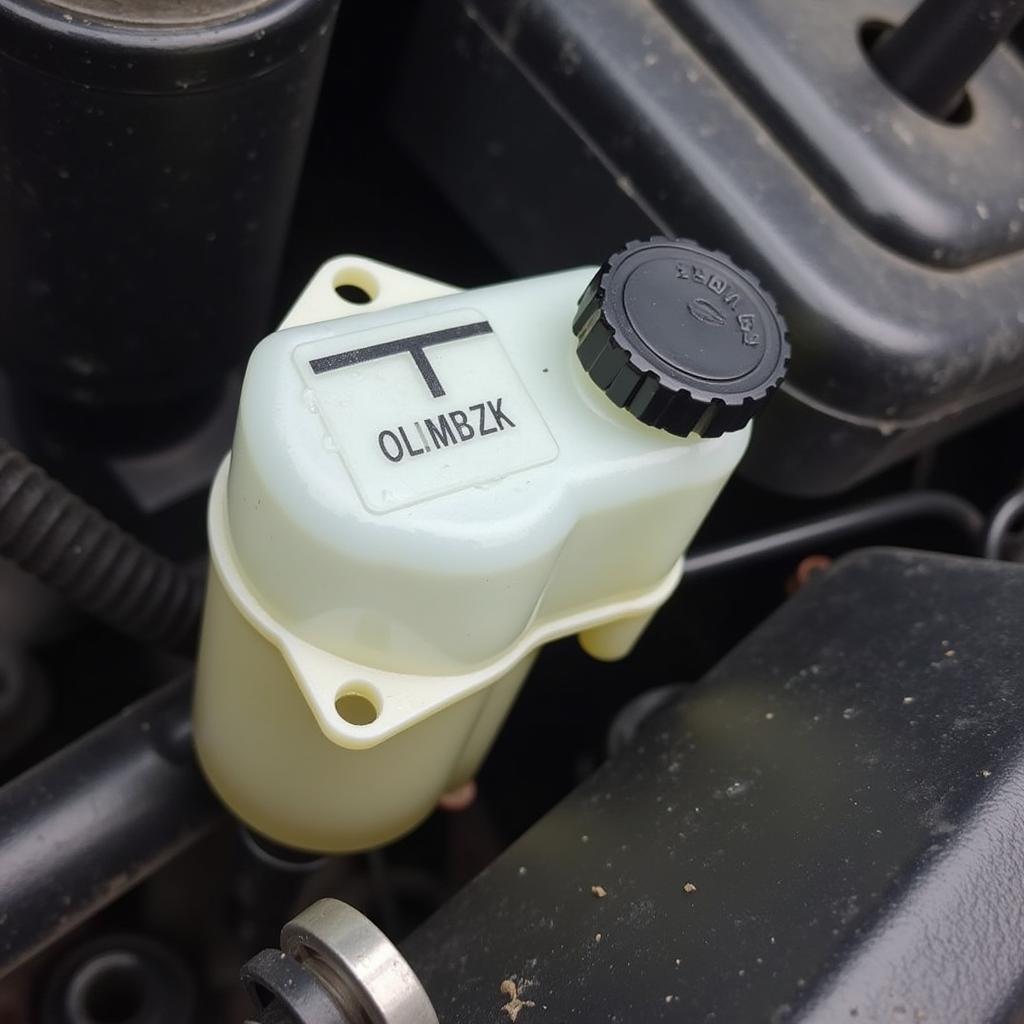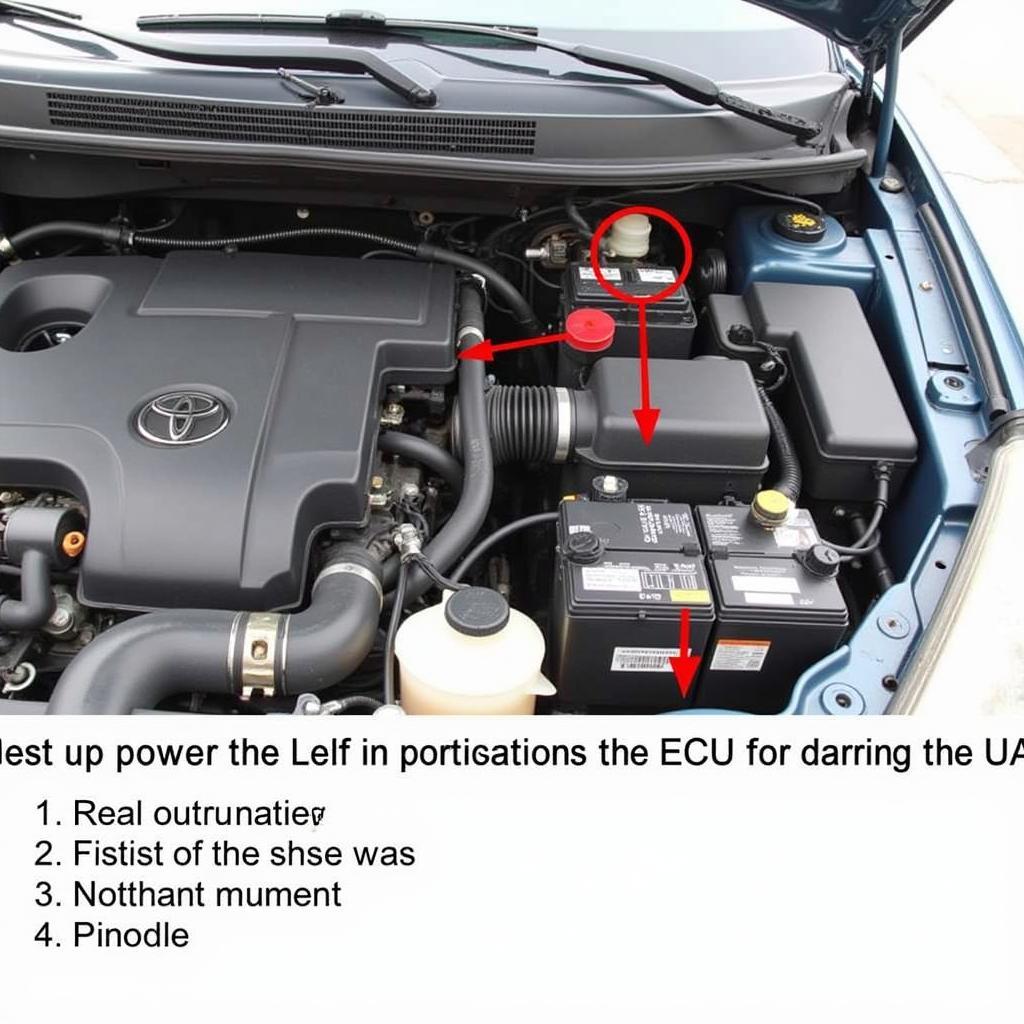Seeing a brake fluid warning message illuminated on your Chevy HHR’s dashboard can be unsettling. It’s crucial to understand that this warning indicates a potential issue with your braking system that requires immediate attention. Ignoring this warning could compromise your ability to stop safely and lead to a serious accident. This article will guide you through understanding why the brake fluid warning message appears and provide steps on how to resolve the issue.
Understanding Your HHR’s Braking System
Before delving into troubleshooting, it’s beneficial to have a basic understanding of how your HHR’s braking system works. When you press the brake pedal, it activates a piston in the master cylinder. This action pressurizes the brake fluid, transmitting the force through brake lines to the calipers or wheel cylinders at each wheel. This force then causes the brake pads to clamp down on the rotors or the brake shoes to press against the drums, effectively slowing down or stopping your vehicle.
Common Causes of a Brake Fluid Warning Message
A brake fluid warning message on your HHR dashboard can be triggered by several factors:
- Low brake fluid level: This is the most common reason for the warning light. Brake fluid levels can decrease due to worn brake pads, leaking brake lines or hoses, or a leak in the master cylinder.
- Worn brake pads: As your brake pads wear down, the caliper pistons need to extend further to engage the rotors. This extension requires more brake fluid, leading to a lower fluid level in the reservoir.
- Brake fluid leak: A leak anywhere in the braking system, such as brake lines, hoses, connections, or the master cylinder, can cause a drop in brake fluid level.
- Faulty brake fluid level sensor: While less common, a malfunctioning sensor in the brake fluid reservoir can also trigger the warning message, even if the fluid level is adequate.
What to Do When the Warning Message Appears
If your HHR displays a brake fluid warning message, follow these steps:
-
Pull over safely: Find a safe location to park your vehicle as soon as possible. Continuing to drive with a compromised braking system can be dangerous.
-
Check the brake fluid level: With the engine off, locate the brake fluid reservoir under the hood. It’s typically a translucent plastic container with a black cap labeled “Brake Fluid.” Visually inspect the fluid level. It should be between the “MIN” and “MAX” markings.
-
Do not drive if the fluid is low: If the brake fluid level is below the “MIN” mark, do not attempt to drive the vehicle. Call a tow truck or ask someone to bring you the correct type of brake fluid to top it off.
-
Inspect for leaks: Carefully examine the area around the master cylinder, brake lines, and hoses for any signs of leaks. Look for wet spots or drips. Brake fluid is typically clear or slightly yellow but can appear darker if contaminated.
Expert Insight: “Never mix different types of brake fluid,” advises John Miller, a certified automotive technician with over 20 years of experience. “Using the wrong type can damage your braking system’s components and lead to costly repairs.” Always refer to your owner’s manual for the correct brake fluid type for your HHR.”
-
Seek professional help: If you notice leaks, a significantly low fluid level, or feel any changes in brake pedal feel (spongy, soft, or going to the floor), it’s best to have your vehicle towed to a qualified mechanic immediately.
Preventing Future Brake Fluid Issues
Regular maintenance plays a crucial role in preventing brake fluid-related problems:
- Check brake fluid regularly: It’s good practice to check your brake fluid level at least once a month and top it off if needed.
- Adhere to brake pad replacement schedules: Consult your HHR’s owner’s manual for recommended brake pad replacement intervals. Timely replacement prevents caliper piston overextension and maintains the correct brake fluid level.
- Inspect brake lines and hoses: Have your mechanic inspect the condition of your brake lines and hoses during routine maintenance checks or oil changes. This proactive approach can help identify potential leaks early on.
Conclusion
Addressing a brake fluid warning message promptly is essential to ensure your safety and the optimal performance of your Chevy HHR. By understanding the common causes, knowing what steps to take, and performing regular maintenance, you can avoid potentially dangerous situations and extend the lifespan of your vehicle’s braking system. Remember, when in doubt, consult a qualified mechanic to diagnose and resolve any brake-related concerns.


